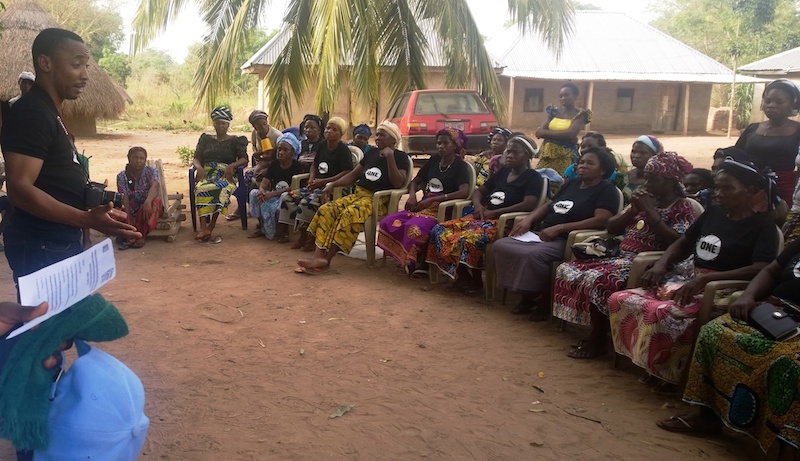
By Edwin Ikhuoria
Alright! The heat of the presidential election is over, and the transition of power is taking attention with the whole world watching to have a glimpse of the hand-over ceremony come May 29.
For Nigeria, this year 2015 provides a unique opportunity for renewed vision and development of an agenda that creates a new development trajectory. It is also the year that ends the Millennium Development Goals (MDGs) and starts another set of Sustainable Development Goals (SDGs) at the global level. The post-2015 SDGs seek to enhance the lives of people all over the world and the planet that they live in. It will be very wise for Nigeria to latch on the global development agenda as the new government takes on the responsibility of governance because carefully thought through goals will be announced and monitored to ensure shared prosperity and sustainable development.
In September 2015, the world’s governments are set to agree to a new set of development goals with the ambition of ending extreme poverty by 2030 and ensuring no one is left behind. The implementation plan for this ambition will require greater focus on delivering for the poorest and most vulnerable, especially women and girls and the marginalised among us. The new Nigerian leadership must be conscious and actively participate in the development of the global development agenda so that it takes responsibility in holding itself accountable to carefully crafted, holistic sets of goals within the Nigerian context.
The very large population of young people in Nigeria have on a constant basis articulated their yearnings and aspirations as they face the future. The yearnings of this generation of Nigerians, who have witnessed a level of inequality that is unprecedented in history are really very simple. They want to see a Nigeria where extreme poverty, currently measured as people living on less than US$1.25 a day is completely eradicated. They desire a country where everyone has equal access to opportunity, especially women and girls who are empowered by ensuring full and effective participation in decision-making. They also hope that the agricultural productivity and incomes of small-scale food producers, particularly women, is much higher and people can feed themselves with nutritious foods.
Our generation would want to experience an end to mother-to-child transmission of HIV and new annual adult HIV infections is reduced drastically, a total end to deaths from preventable diseases like malaria and tuberculosis and universal access to lifesaving medicines or treatments and vaccines within a very resilient health system.
Various forums have also been used by young people to state that universal access to affordable, reliable, and modern energy is a basic need for development while all citizens have the opportunity to use information to monitor implementation of national development plans, evaluate how public monies are spent and what results they deliver are necessary to push Nigeria out of the poverty trap and unleash the huge potential in our nation.
These aspirations could be seen as just what any responsible government should aim to achieve. The new leadership can put Nigeria on this new trajectory by immediately assessing our current status as a nation regarding these indicators. We can achieve this by strengthening our national official statistical systems to give all Nigerians a robust 2015 baseline from which to measure development progress into the future. No one can assess progress if your starting point is unclear. There are too many conflicting reports of where we are today as a nation. Progress reported by some may be seen as no progress at all by others. However, for a fact, we know that Nigeria is the largest oil producer in Africa and the eleventh largest producer of crude oil in the world, yet the vast majority of its 170 million citizens have seen little benefit from this legacy of wealth.
When we all know where we are as a nation, we can then take some positive steps to launch ourselves into concrete progress, no matter how small. For instance:
We can commit to act on the principle that ‘everyone counts’ so that policies can be appropriately designed to meet the recognizable needs of all segments of society. This should include robust systems of registering and identifying every citizen in this country.
We can accurately determine our current resource base and harness other potential resource endowments more effectively in order to generate better domestic investment capital.
We can allocate our resources more efficiently to achieve growth in the sectors with the greatest impact like agriculture and commodity-based industry
We can publish accurate, timely and standardised revenue and expenditure data, including implementing mandatory disclosure laws to force phantom firms to disclose owners and beneficiaries of companies and trusts, as well as to ensure the full public disclosure of all revenue received from energy and natural gas and all other sectors and at all levels. A situation where Nigeria scores 16 out of 100 in the open budget index in 2014 is a major sign of non-transparency.
We can ensure all citizens have the opportunity to use information to monitor implementation of national development plans, evaluate how public monies are spent and what results they deliver by urgently investing in training programs to build capacity and empower citizens.
The incoming government must see this time in history as a time to re-energise the institutions that can allow broader participation of the citizens in the management of its development while ensuring that accountability and probity drives all investments in public goods and services.
Ikhuoria, ONE Campaign’s Country Representative, writes from Abuja, Nigeria











